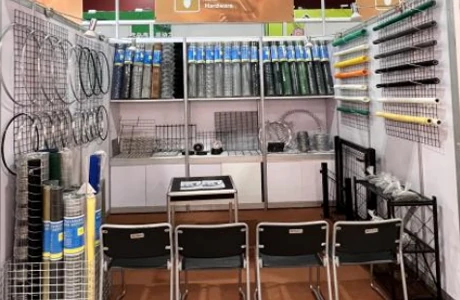Choosing the Right Nails for Your Hardwood Flooring Installation
Understanding Hardwood Flooring Nails The Key to a Successful Installation
When it comes to installing hardwood flooring, one of the most critical components often overlooked is the type of nails used in the process. Hardwood flooring nails are essential for securing the planks to the subfloor, ensuring stability, and prolonging the lifespan of your flooring. In this article, we will explore the different types of nails, their features, and the importance of choosing the right one for your hardwood flooring project.
Types of Hardwood Flooring Nails
There are several types of nails used in hardwood flooring installations, each designed for specific purposes and conditions
. The two most common types are cleat nails and staple nails.1. Cleat Nails These are typically made from hardened steel and feature a distinct cleat or barb on the sides. Cleat nails are designed to grip the wood securely, preventing any movement of the flooring planks over time. They are often used with hardwood that is tongue-and-groove, creating a strong connection between the planks.
2. Staple Nails A popular alternative to cleat nails, staple nails are straight and flat with two legs. They are inserted into the floor at an angle, which allows for a secure hold. Staple nails can be easier to install with a flooring nailer and are often chosen for engineered hardwood, as they provide a solid anchor.
Choosing the Right Nails
hardwood flooring nails

Selecting the right nails for your hardwood flooring is crucial. The choice depends on various factors, including the type of hardwood, the thickness of the planks, and the subfloor materials. For example, hardwood with a thickness of 3/4 inch typically requires longer nails for optimal fastening, while thinner engineered wood might work well with shorter staples.
Furthermore, the type of subfloor also plays a role. If you are installing hardwood over a concrete subfloor, you may need to use a different fastening method, such as glue, rather than nails. Conversely, wooden subfloors are conducive to nail-down installations, making cleat or staple nails the ideal choices.
The Importance of Proper Installation
Proper installation is essential for the longevity and performance of hardwood flooring. Using the wrong type of nails can lead to issues such as squeaking, warping, or even damage to the wood. Hence, it is recommended to consult with a flooring professional or refer to manufacturer specifications to ensure you are using the best nails for your particular project.
Conclusion
In conclusion, hardwood flooring nails are more than just fasteners; they are integral to the overall success of your flooring installation. By understanding the different types of nails available and their appropriate applications, you can ensure a stable and durable hardwood floor that will complement your home for years to come. Always prioritize quality materials and expert advice to achieve a flawless finish in your flooring endeavors.
-
Innovations in Razor Barbed Wire Design TechnologyNewsAug.11,2025
-
Roofing Nail Compatibility with Different Metal Roof TypesNewsAug.11,2025
-
Welded Wire Mesh for Rockfall Protection BarriersNewsAug.11,2025
-
Galvanized Wire Corrosion Resistance TestingNewsAug.11,2025
-
3D Fence Solutions Preventing Bird CollisionsNewsAug.11,2025
-
Using Chain Link Fence for Urban Garden SupportNewsAug.11,2025




